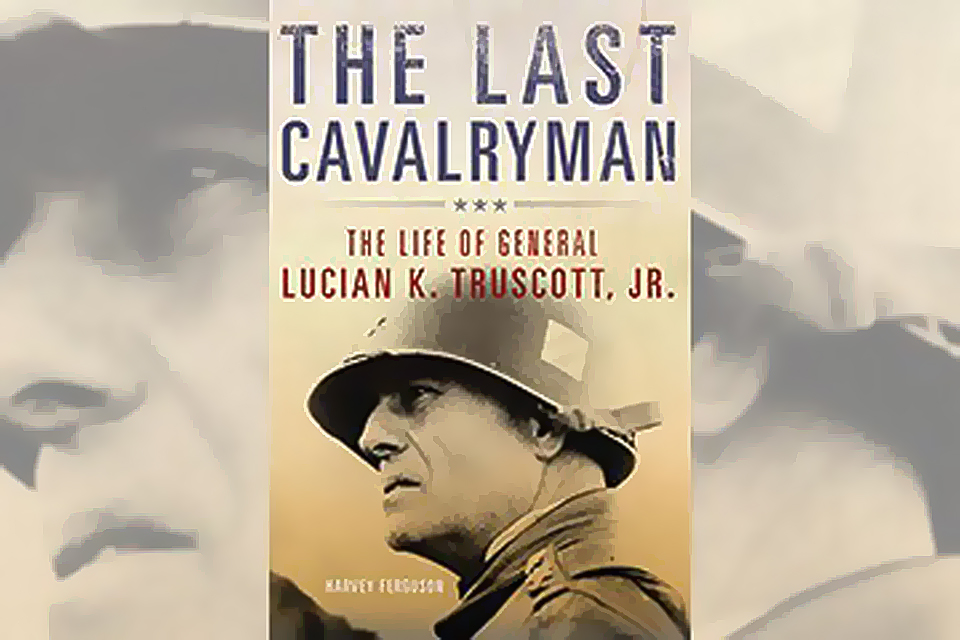The Last Cavalryman: The Life of General Lucian K. Truscott Jr., by Harvey Ferguson, University of Oklahoma Press, Norman, 2015, $29.95
First consider Patton—arrogant, abrasive, self-aggrandizing. Then Truscott—quiet, so modest he kept his name out of press releases, and certainly not someone who would ever slap a soldier mentally broken by war. It remains an open question which was the tougher or more effective commander. Wartime editorial cartoonist Bill Mauldin said Truscott could have “eaten a ham like Patton for breakfast any morning and picked his teeth with the man’s pearl-handled pistols.” In contrast to Patton’s ivory-handled Colts, Truscott wore a trademark white scarf while quietly compiling his impressive list of victories and promotions. Still, it was Patton who grabbed the glory.
Truscott, who called for creation of the modern-day Army Rangers, broke through at Anzio, helped plan and execute the invasion of southern France, and took over the Fifth Army from Mark Clark to drive the Germans from Italy. If a soldier could have chosen to fight under a standup, honorable, old-school guy, someone who spent as much time on the front lines as in HQ, he would likely have chosen Truscott. At a ceremony honoring the Anzio dead right after the win in Europe, the general stood before the assembled dignitaries and VIPs, turned his back on them and spoke instead to the dead in their rows upon rows of graves. Mauldin described the scene: “[Truscott] apologized to the dead men for their presence here. He said everybody tells leaders it is not their fault that men get killed in war, but that every leader knows in his heart this is not altogether true.…Truscott said he would not speak about the glorious dead, because he didn’t see much glory in getting killed in your late teens or early 20s.” Then he sat down. Who wouldn’t prefer to serve under such a man?
Ferguson’s biography of Truscott is the third in the past half-dozen years, a sign of the increased attention being paid to the man. The most interesting chapters come in the interwar years, a little-known period in the history of the U.S. armed forces, when Truscott, a poor boy from Texas, became a cavalry officer, learned to play the “Sport of Kings,” polo, and rose in the ranks partly because of it but primarily due to his obvious talent as a military planner and leader. Eisenhower recognized his worth and gave him important assignments as World War II reached our shores. Truscott had never seen combat, but he soon did in North Africa, then Sicily, Anzio, Cassino and on to France. Yet even as his reputation in the ranks continued to grow, to the press he was never glamorous enough. He ended his career in a postwar role with the CIA. Seven years after Truscott retired, the United States added a fourth, honorary star to the three he had earned in World War II.
Ferguson’s book is workmanlike and thorough, written by an amateur who served, years later, in a division Truscott had once commanded. Don’t expect brilliant writing, but do expect to find an extraordinary general, one of the best we’ve ever had.
—Anthony Brandt





